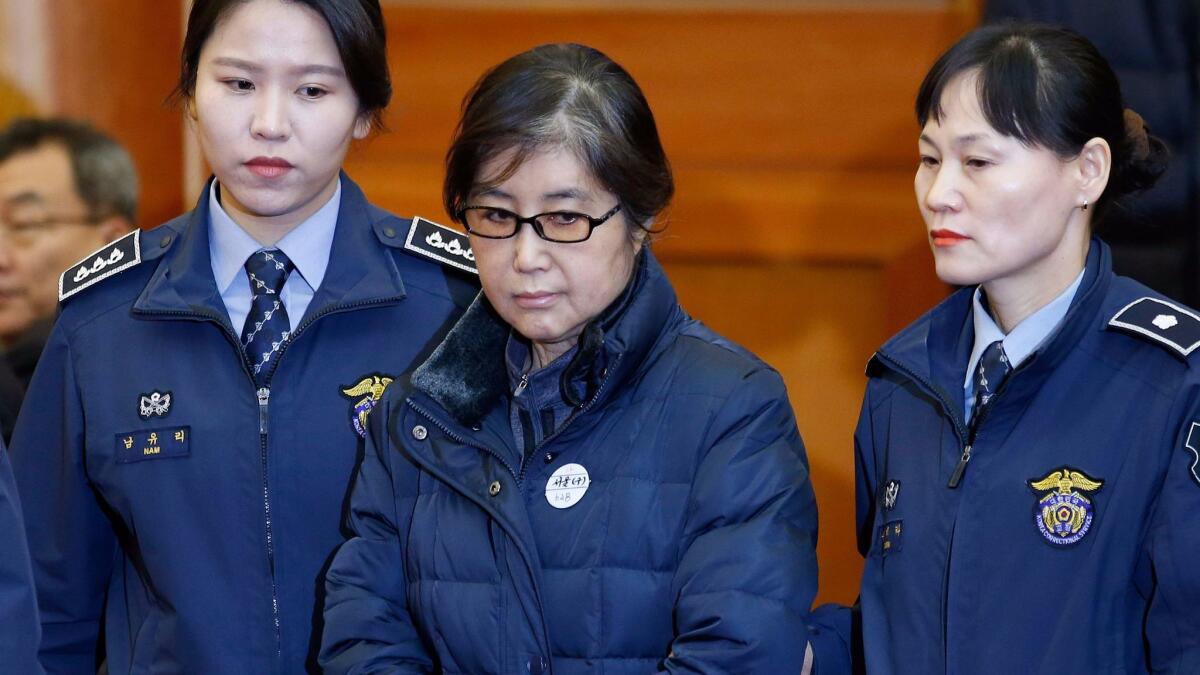Friend of ousted South Korean president gets 3 years in prison

Reporting from SEOUL, South Korea — A South Korean court on Friday sentenced a longtime friend of ousted President Park Geun-hye to three years in prison for using her presidential ties to unlawfully get her daughter into a prestigious Seoul university.
The Seoul Central District Court said Choi Soon-sil “committed so many illegal activities” as she pressured Ewha Womans University to grant admission and then provide academic favors to her daughter despite Chung Yoo-ra’s questionable qualifications.
Choi, Park’s friend of 40 years, is being tried separately over more serious charges, including allegations that she colluded with Park to take tens of millions of dollars from the country’s largest companies in bribes and through extortion.
Following months of massive protests by millions and impeachment by lawmakers in December, Park in March was formally removed from office and arrested in connection with the corruption scandal. She was indicted in April on bribery and other charges.
Choi Kyung-hee, Ewha’s former president, and Namkung Gon, the university’s former head of admissions, also received shorter prison terms on Friday for providing Chung favorable treatment.
Chung was extradited from Denmark last month and is currently being investigated by prosecutors who see her as a key figure in the suspected bribery connections between Park and corporate giant Samsung.
According to prosecutors, Park colluded with Choi to take about $26 million in bribes from Samsung and was promised tens of millions of dollars more from Samsung and other large companies. Prosecutors say the bribery included $7 million Samsung provided to a sports consulting firm controlled by Choi that financed Chung’s equestrian training in Germany.
The allegations that Chung was sponsored by Samsung and received academic favors helped drive the popular anger that led to Park’s ouster. Many students were among the millions who protested against Park for weeks, angry that Chung got a free pass into an elite school because of her wealth and connections, while others navigate the country’s hyper-competitive school environment on their own.
More to Read
Sign up for Essential California
The most important California stories and recommendations in your inbox every morning.
You may occasionally receive promotional content from the Los Angeles Times.










